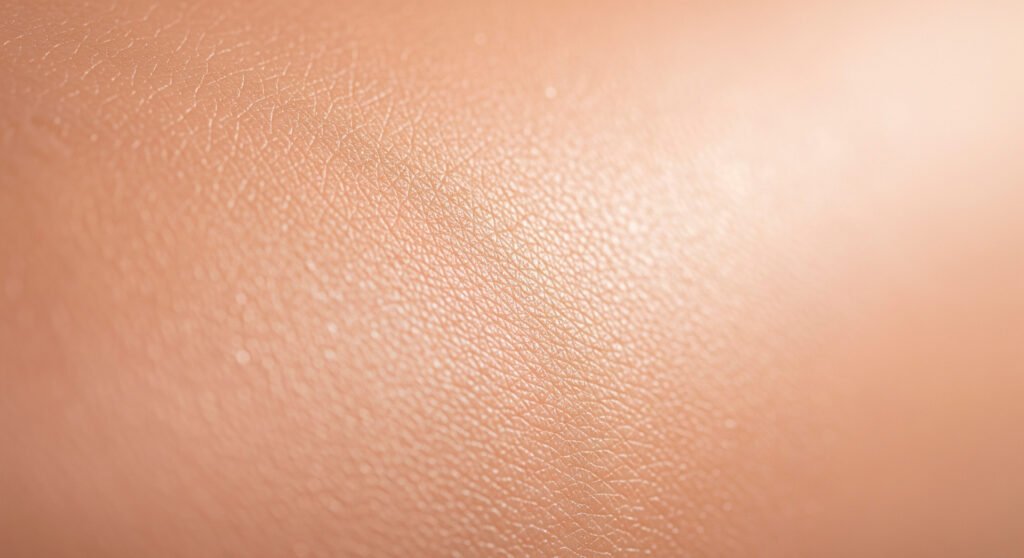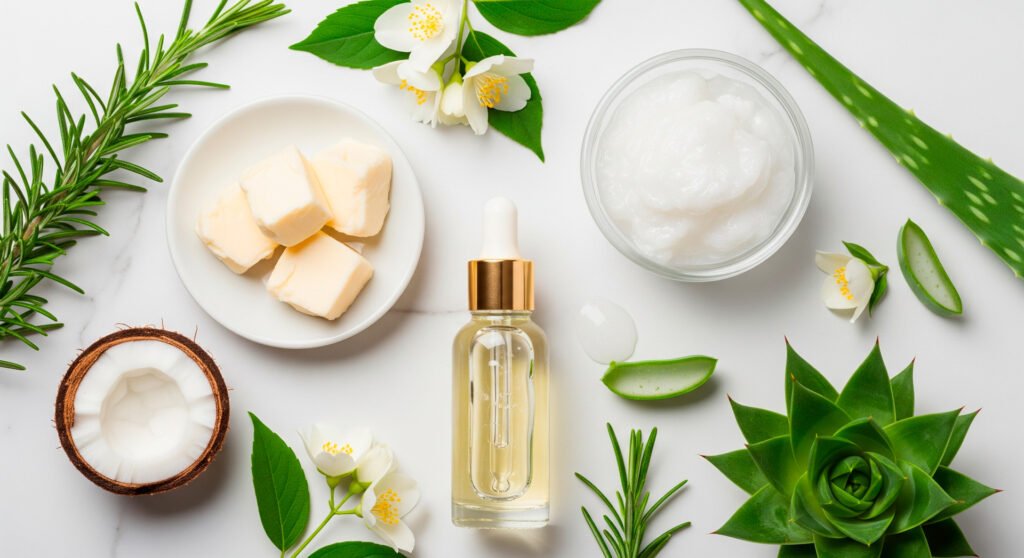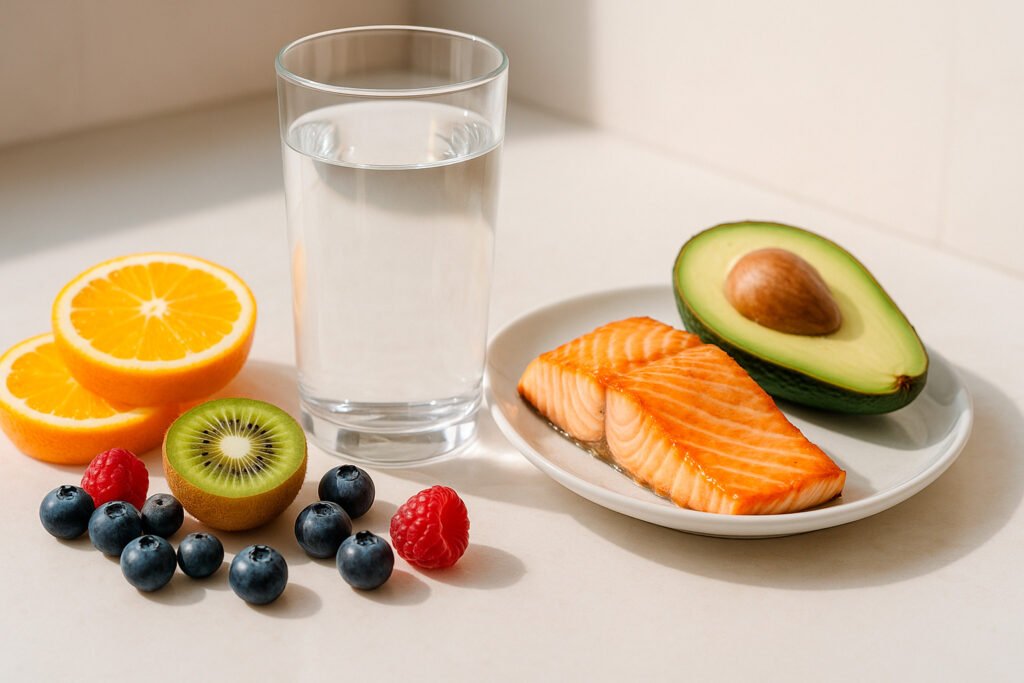Page Contents
ToggleHave you ever looked in the mirror and wondered why your skin looks dull, feels tight, or shows those fine lines that weren’t there last year? If you’re like most adults navigating your 30s, 40s, and beyond, you’ve probably noticed that maintaining healthy, radiant skin becomes more challenging with each passing year. The good news is that understanding how to properly hydrate skin can transform your complexion naturally, without relying on expensive treatments or harsh chemicals.
Your skin is your body’s largest organ, and just like any other part of your body, it needs proper nourishment to function at its best. When your skin lacks adequate hydration, it doesn’t just affect your appearance – it impacts how comfortable you feel in your own skin every single day.
Understanding Your Skin’s Natural Moisture System
Your skin has an incredibly sophisticated built-in system designed to maintain hydration. The outermost layer, called the stratum corneum, works like a protective brick wall. Dead skin cells called corneocytes stack together like bricks, while natural fats called lipids act as the mortar holding everything together. This cellular barrier is your skin’s first line of defense against moisture loss.

When this natural barrier functions properly, it locks moisture inside your skin cells, keeping them plump, healthy, and resilient. However, this moisture-locking system doesn’t always work as effectively as we’d like, especially as we age or face environmental challenges.
And when this barrier is compromised by infection, moisture loss accelerates. If you’re struggling with persistent nail or skin fungus that disrupts this protective layer, our in-depth review of NanoDefense Pro explores a solution designed to penetrate deeply to restore health.
Why Your Skin Loses Hydration Over Time
Understanding the root causes of dehydrated skin empowers you to address the problem effectively. Several factors can compromise your skin’s ability to maintain optimal hydration:
Environmental Factors:
- Exposure to cold winter air or hot, dry climates
- Air conditioning and heating systems that reduce humidity
- Sun exposure that damages the skin barrier
- Pollution that creates free radical damage
Daily Habits That Deplete Moisture:
- Taking long, hot showers or baths
- Using harsh soaps and cleansers that strip natural oils
- Over-exfoliating with rough scrubs or washcloths
- Not drinking adequate water throughout the day
- Using products with alcohol or other drying ingredients
Health-Related Causes: Certain medical conditions can also impact your skin’s hydration levels, including thyroid disorders, diabetes, menopause, and autoimmune conditions like Sjögren’s syndrome. If you suspect an underlying health issue is affecting your skin, consulting with a healthcare provider can help identify the best treatment approach.
Fungal infections are a common but overlooked cause of chronic dryness and cracking. For those needing a targeted approach that goes beyond standard moisturizers, our comprehensive analysis of NanoDefense Pro details how its nano-ingredients target the root of the problem.
Moisturizing vs. Hydrating: The Key Difference
While these terms are often used interchangeably, understanding the distinction can help you choose the right products for your skin type and concerns.
Moisturizing focuses on strengthening your skin’s barrier to seal in existing water. Moisturizing products typically contain three types of ingredients:
- Humectants like glycerin and hyaluronic acid that pull water from the air and deeper skin layers
- Occlusives like natural oils and waxes that form a protective barrier preventing water loss
- Emollients like shea butter and coconut oil that smooth and soften the skin surface

Hydrating goes deeper, infusing water directly into skin cells to plump them from within. This process helps restore the cellular volume that makes skin look full, smooth, and youthful.
Many modern skincare products combine both moisturizing and hydrating ingredients to address multiple aspects of skin health simultaneously.
Natural Ways to Hydrate Skin and Boost Skin Health
The most effective approach to maintaining healthy skin combines good daily habits with targeted skincare choices:
Optimize Your Daily Routine:
- Limit showers to 5-10 minutes using lukewarm water
- Choose gentle, fragrance-free soaps and detergents
- Pat skin dry rather than rubbing vigorously
- Apply moisturizer to slightly damp skin to lock in moisture

Create a Skin-Friendly Environment:
- Use a humidifier during winter months when indoor air becomes dry
- Protect your skin from harsh weather with appropriate clothing
- Choose breathable fabrics that don’t irritate sensitive skin
Support Hydration from Within:
- Drink water consistently throughout the day
- Include foods rich in healthy fats like avocados, nuts, and fatty fish
- Consider omega-3 supplements to support skin barrier function
- Limit alcohol and caffeine, which can contribute to dehydration

How to Moisturize Skin: Choosing Products for Your Skin Type
Not all products work for every skin type, and using the wrong formulation can actually worsen hydration problems. Understanding your skin type helps you select the most effective products:
For Oily Skin: Look for lightweight, non-comedogenic moisturizers that won’t clog pores. Gel-based or water-based formulas often work best.
For Dry Skin: Choose richer creams with ceramides, natural oils, and other barrier-repairing ingredients that provide long-lasting moisture.
For Sensitive Skin: Opt for fragrance-free, hypoallergenic products with minimal ingredients to reduce the risk of irritation.
For Combination Skin: Consider using different products on different areas of your face, or choose a balanced moisturizer that addresses multiple needs without being too heavy or too light.
When to Seek Professional Guidance
While natural approaches work well for most people, some situations warrant professional attention. Consider consulting a dermatologist if you experience:
- Persistent dryness despite consistent skincare efforts
- Severe itching, cracking, or bleeding
- Signs of skin conditions like eczema or dermatitis
- Sudden changes in your skin’s texture or appearance
A skincare professional can help identify underlying causes and recommend targeted treatments that work with your skin’s unique needs.
Sometimes, stubborn issues like fungal infections require advanced delivery systems to clear up completely. If standard treatments haven’t worked for you, see our complete breakdown of NanoDefense Pro to learn about a NASA-inspired formula that might be the answer.
Building Long-Term Skin Health
Creating and maintaining healthy, hydrated skin is a journey rather than a destination. The habits you develop today will impact how your skin looks and feels for years to come. Start with simple changes like adjusting your shower temperature, choosing gentler products, and making sure to moisturize skin consistently every day. Addressing fungal dryness with Kerassentials can restore comfort and skin balance.
Remember that everyone’s skin is different, and what works for others may not work for you. Pay attention to how your skin responds to different products and environmental factors, and adjust your approach accordingly. With patience and consistency, you can achieve the healthy, comfortable skin you deserve. Kerassentials may help with fungal conditions affecting your hydration and texture.
Your skin has an amazing ability to heal and regenerate when given the right support. By understanding its needs and providing proper care, you’re investing in both your immediate comfort and your long-term skin health. Kerassentials delivers targeted antifungal nourishment for stressed skin.
Sources
This article was inspired by and adapted to better serve the readers of Best Natural Health Products from “Dos and Don’ts of Skin Hydration”. WebMD. Available at: https://www.webmd.com/beauty/features/skin-hydration. Accessed on: June 17, 2025.
Sarah Jenkins is a Senior Wellness Researcher and former science educator. She specializes in "Ingredient Provenance"—decoding complex clinical studies to ensure every product is safe and historically verified. Sarah translates dense medical data into actionable advice for families and individuals.
